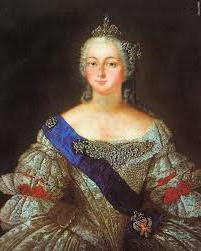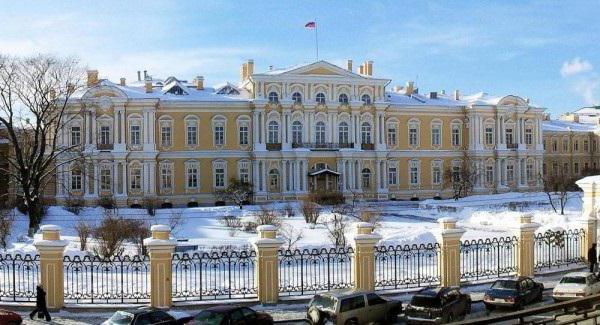Count Mikhail Illarionovich Vorontsov is a Russian diplomat who owes his exaltation to the Vorontsov family. He was one of the closest associates of Peter the Third and Elizabeth Petrovna. In 1741 he became a member of the palace coup. He worked as Chancellor and Vice Chancellor of the Russian Empire. Today we will get to know more closely such an outstanding personality as Vorontsov Mikhail Illarionovich. Biography, facts from life, working methods and evaluations of contemporaries will help us with this.
Childhood and youth
Vorontsov Mikhail Illarionovich was born July 12, 1714 in a family of small landowners who owned two hundred peasants. At a young age, he received a good home education, which helped him to become a page at the age of fourteen. Two years later, Vorontsov became a page-chamber. And in 1735 he was appointed chamber junker at the court of Elizabeth Petrovna. Soon Vorontsov became her secretary. The last appointment turned out to be a fateful event for Mikhail Illarionovich.
The trust
Throughout the service, Vorontsov enjoyed the full confidence of Elizabeth Petrovna. He was even initiated into the subtleties of the plot against Anna Leopoldovna. Five days after the palace coup was successfully held, Mikhail Illarionovich was granted the status of chamberlain, and was also awarded the rank of major general.
Career
The influence of Mikhail Vorontsov on foreign policy was decisive, so he attracted the close attention of representatives of foreign yards. Frederick II awarded Vorontsov the Order of the Black Eagle, Augustus the Third - the Order of the White Eagle, and in 1744 he was elevated to the count dignity of the Roman Empire. Around the same time, Mikhail Illarionovich received the same title in his homeland. In addition, in the same 1744, Count Vorontsov was appointed vice chancellor and received the title of state adviser. Moreover, as many of his contemporaries claimed, he did not have outstanding talents.

In 1746, under the pretext of "improving health," the count went on a forced journey for two years in European countries: Germany, France, Italy and the Netherlands. Returning from the voyage, he set to work as vice chancellor. In 1751, Vorontsov “for diligence in favor of the Fatherland” was awarded the Order of St. Andrew the First-Called, which was considered the highest Russian award. In just a few years, Vorontsov managed to slander in the eyes of Elizabeth Petrovna his worst enemy and rival, Count Bestuzhev-Ryumin, who served as chancellor. When the latter retired, Vorontsov's longed-for dream came true - he became chancellor.
Change of power
During the short reign of Peter III Vorontsov, Mikhail Illarionovich enjoyed special imperial mercy. But with the accession to the throne of Catherine II, even the fact that the count held out the post of chancellor for at least some time was surprising. The fact is that Catherine the Second really did not like the Vorontsovs. The reason for this was their devotion to Peter the Third.
As chancellor under Elizabeth Petrovna and Peter III, Vorontsov maintained allied relations with Austria against Turkey, worked on Russia's rapprochement with Frederick the Second, and was known as the Prussophile. Also, Mikhail Illarionovich Vorontsov was a party to the conclusion of a treaty on the resumption of the defense alliance between Russia and Sweden. In 1760, not without his participation, Russia joined the French-Austrian treatise, and two years later signed with Prussia a treatise on eternal peace.
Before swearing an oath to the new empress, the chancellor asked her for a gracious dismissal from the post of chancellor and dismissal from all affairs. The experienced courtier understood very well that those who did not swear allegiance to the empress did not have the right to any public service. Catherine II refused to release Vorontsov from business, but not for long.
Continuation of Service
When Catherine II went to the coronation in Moscow, Vorontsov accompanied her along with other nobles. Returning to St. Petersburg, he began to actively engage in European affairs and became interested in relations between Russia and the East, in particular with Turkey. Turkey has long attracted the attention of the count. As far back as 1744, when Vorontsov learned that the Ottoman rulers openly opposed the admission of Russian diplomats to Taurida, he instructed Istanbul resident Neplyuev to somehow secure for Russia the right to consul in Crimea, because even France, located much further from the peninsula, already had such right. However, the Turks, without thinking twice, rejected this proposal. According to the upset Neplyuyev, at the ministerial conference in Istanbul, things did not go beyond simple maxims.
Crimean situation
The situation on the peninsula for a long time aroused concern at the St. Petersburg court. In one of the service notes filed by Catherine II at the dawn of her reign, the chancellor emphasized that Turkey, among other things, could harm Russia through the Crimean khans. “The integrity of the Port of Ottoman depends on its military labors and feats that strengthen its political body, and from long rest it becomes exhausted, which can lead to complete destruction,” Mikhail Vorontsov emphasized. The Grand Chancellor was right about Crimea and the intentions of the Turkish rulers, but everyone will understand this only after two decades. The count was the first who was able to substantiate in detail the need for Russia to join Crimea to the empire.
Second treatment
A year after the accession of Catherine the Second, Vorontsov Mikhail Illarionovich realized that the imperial court began to treat him with undisguised indifference. In this situation, he decided to do the same as in 1746 - to go on a journey to improve health. On August 4, 1763, the Senate received a decree saying something like the following: “Chancellor Vorontsov informs us that due to poor health he is not able to carry the labors of his rank unless he takes advantage of a change of air or healing waters, and for this he asks us to dismiss him for at least two years to foreign lands. ” As a result, Catherine II granted the Earl leave while retaining his position.
As soon as the count left St. Petersburg, Count Panin, an experienced diplomat who was ordered to become one of the empress’s closest associates, immediately arrived at the College of Foreign Affairs . On October 7, Catherine the Second signed a decree appointing Panin to the position of the first-present College of Foreign Affairs. The decree said that in connection with the prevailing "not difficult" circumstances, the empress considered it good for her, when Chancellor Vorontsov was absent, to entrust Panin with the foreign affairs of the College.
Upon learning of the appointment of Panin, the count decided to urgently return to the Northern capital. The empress, in response to this, gave him an order through Prince Golitsyn, according to which the chancellor should transfer his affairs to Mr. Panin. In fact, this meant that it was time for the chancellor to resign. On July 29, 1765, Mikhail Illarionov Vorontsov received 50 thousand rubles as compensation.
Activity Summary
Since then, Vorontsov Mikhail Illarionovich did not return to diplomacy. As later noted by Ekaterina Dashkova, the count’s observant niece, everything in the Russian capital was done by the will of Catherine II and was digested by Mr. Panin. The count himself, summing up his activities as chancellor, said that finding himself in a poor financial situation, he saw the difference between an honest, disinterested chancellor and a rich stay in the same position.
In the meantime, the empress doubted the “selflessness” and “virtue” of Vorontsov. Despite personal antipathy, she was generous with him: he gave him villages and factories. Nevertheless, Vorontsov constantly flaunted his need for money. He asked the state for subsidies, funds for paying debts and enjoyed all the privileges his position allowed.
In order to cover the costs of building palaces, he was engaged in very risky entrepreneurship, including speculating in bread and foreign investment. In 1757, Vorontsov, together with Prosecutor General Glebov and Count Shuvalov, obtained the privilege of selling flaxseed from the ports of Arkhangelsk and Onega. However, in this enterprise, the count failed. In the end, he was forced to sell to the treasury an unfinished palace located on Sadovaya Street, and cede Marienburg to the landowner Fitingof.

Mikhail Illarionovich Vorontsov was interested in science. Abroad, he wrote out many books that served as the beginning of the legendary Vorontsov library. Among the editions collected by the count, many of the works were endowed with inscriptions. For example, Count Bruhl, the Saxon minister who worked at the court of the Northern capital, presented Mikhail Illarionovich with a luxurious edition of the engravings of his own art gallery. Thanks to Vorontsov, many important documents were saved, later included in his famous archive, which was published by Bartenev in the form of forty books.
One of the most interesting facts from the biography of Vorontsov is his friendship with Mikhail Lomonosov. The scientist more than once asked the count about "an important intercession and betrayal." Mikhail Illarionovich, in turn, showed a genuine interest in the scientific research of the scientist and sponsored him. In March 1753, in a letter to Vorontsov, Lomonosov said that he remembered the column as "a son of his true father." Later, for the count’s money, a marble monument was erected on the grave of a scientist.
Family life
In 1722, Vorontsov Mikhail Illarionovich married Anna Karlovna Skavronskaya, the cousin of Elizabeth Petrovna. The couple gave birth to four children, three of whom did not live a year. The chancellor did not have direct male heirs, but thanks to his brothers, the history of the clan did not end there. Mikhail Illarionovich had two brothers: Roman and Ivan.
Personality characteristic
As a successful statesman, Vorontsov Mikhail Illarionovich received very mixed assessments in historical literature. According to K. Valishevsky, no matter how paradoxical this may sound, he was "a venal, but in a certain sense, still an honest man." Manstein considered the count to be poorly educated and inefficient. Empress Catherine II, who did not favor the count, spoke out categorically to him. According to her, there was no foreign court in which he would not stand on a salary.
Vorontsov was not to take caution and restraint. For years, foreign envoys have been waiting for decisive answers from him, but, as a rule, in vain. He encouraged everyone, but never revealed his true intentions. According to many foreign observers, Vorontsov played the role of a screen covering the Shuvalov brothers. He, being more courteous and educated than the Shuvalovs, was ideally suited for "exchanging courtesies with ambassadors."
Last years
Since Vorontsov Mikhail Illarionovich, whose biography was the subject of our review, was dismissed from public service, he settled in Moscow. There, on February 15, 1767, the count died. He was buried next to relatives in a monastery on Vozdvizhenka. In 1934 the monastery was demolished. Vorontsov's daughter survived him for only two years. Since she had no children, the count's inheritance was divided between his brothers. Such an interesting and unusual biography was the famous Chancellor - Vorontsov Mikhail Illarionovich. Years of life of the count: 1714-1767.